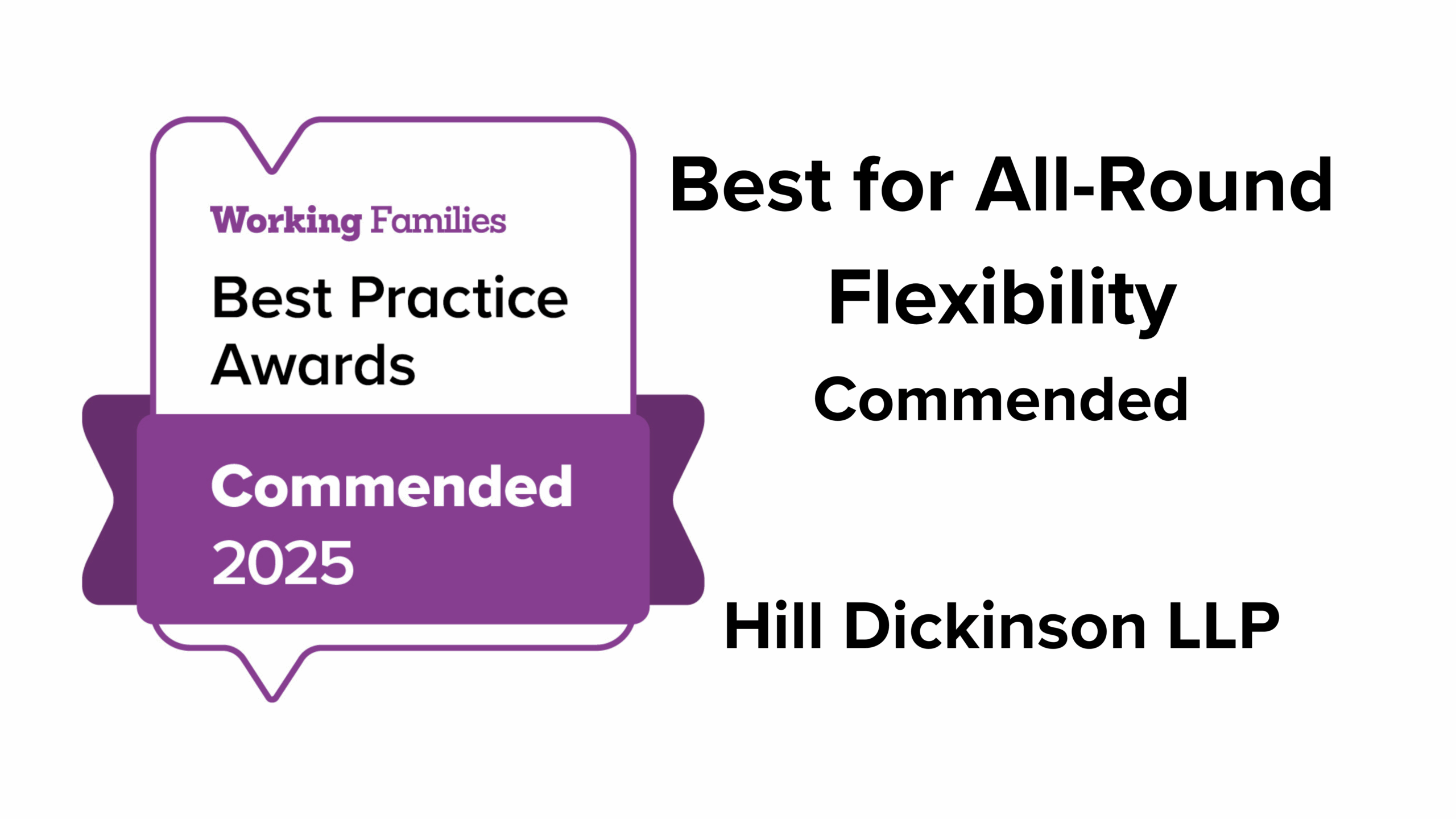Hill Dickinson – Commended 2025, Best for All-Round Flexibility
Hill Dickinson’s innovative and long-standing model of flexible working is designed to take care of their people by giving them autonomy, as well as appeal to the best in the business, and progress women into leadership roles in pursuit of gender equality.
A flex-first approach
Hill Dickinson strive for flexible working to be the norm. All roles are assessed for flexibility, with many stating flexible options on the advert and with the Happy to Talk Flexible Working logo signalling an openness to having conversations around flexible solutions. Information about the flexible working policy is visible on the website to highlight their commitment. Flexible working arrangements on offer, both formal and informal, are varied, with most working a 40/60 split between home and the office. Even roles that need to be on-site have access to flex on an ad hoc basis, or flexibility around hours. Senior managers role model flexible working. Mandatory training is provided on how to manage hybrid teams, with workshops and masterclasses that keep line managers up to date with the latest tools and approaches.
People-centred practices
Hill Dickinson have signed up to the Mindful Business Charter to promote consideration of others who may be working flexibly when sending emails or scheduling meetings. Videos about the charter from senior management and the CEO gets the message out and encourages participation.
Workloads are distributed according to individual working patterns, with targets adjusted accordingly and time given for returners to settle back in, none of which is related to being entitled to a bonus. A mentorship programme and network facilitate career support according to specific needs, aiding part-time progression.
Measure of success
Hill Dickinson can clearly demonstrate their measures are having an impact, with part-time promotions representing 22% of all new partner promotions, and 93% of mothers returning from maternity leave. In addition, 36.4% of leaders are female, which is a 5% increase since 2023, and the executive board has a female majority. 72% of leavers are very satisfied/satisfied with work life balance, and networking groups such as the Health and Wellbeing and Gender groups, meet regularly to look at ways to continuously improve.
